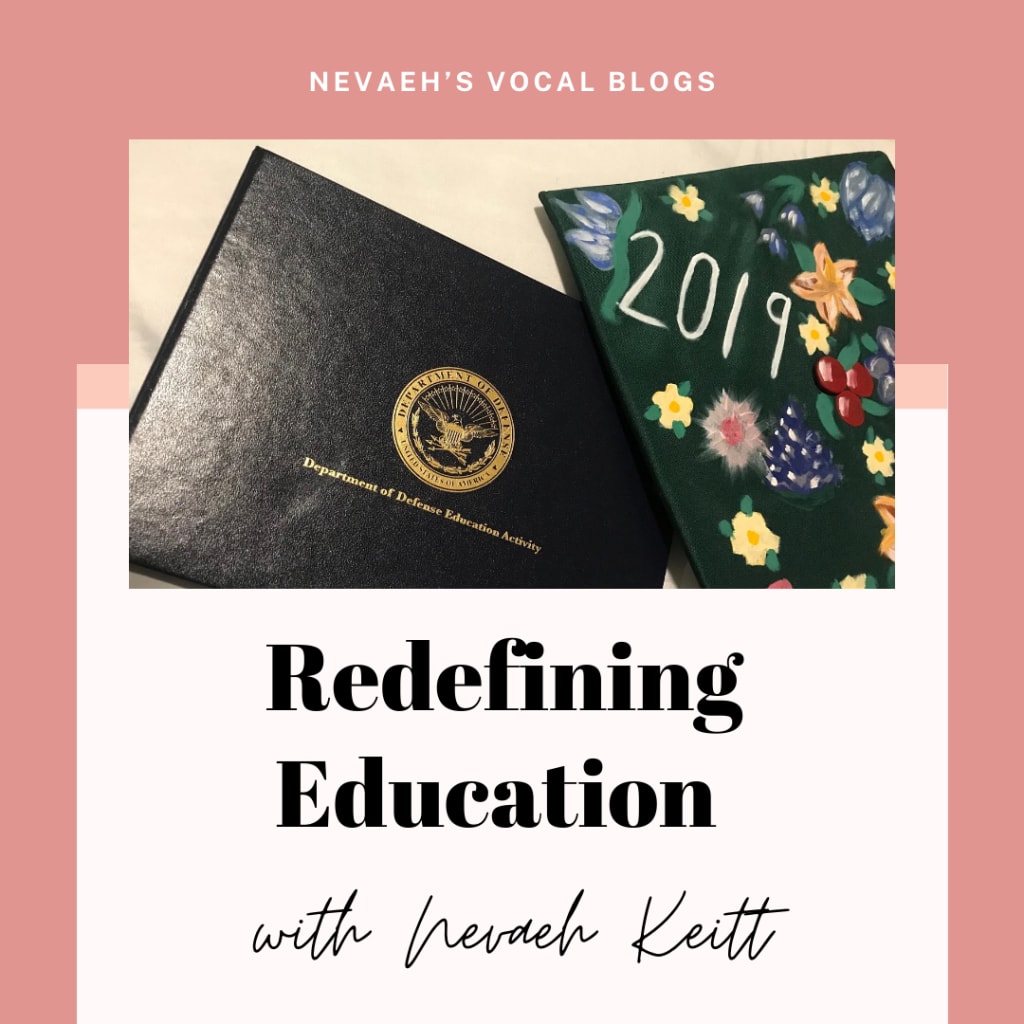
While Plato gives a valid claim, in his piece Allegory of the Cave, that education frees a person from their “cave”, or ignorance and set beliefs, the consequence of a person exposed to different views and a different environment of their own draws difficulty in believing an unusual reality to be true, while also making it hard to reach connections and an understanding through people who have not seen the same thing. I will redefine education, and contend that gaining an education reveals the misperception of truth, while it also reveals the disconnection between myself and others who do not have the opportunity to leave their caves.
Society has constantly perceived education to be a limited, vague idea, however, through exploring Plato’s cave concept, education is a transformative experience where people identify new perspectives to find greater meaning in life. Schools have always painted their picture of education as an instructional manual in a classroom setting where students' learning is based on what the instructor teaches them. Additionally, whatever a student learns they are expected to spit back out, which is knowledge, yet if the point of education was to give a person something to learn, memorize, and apply to situations then it is a structure that is being taught. Education exists to restructure what people are expected to know, which is how societal influence greatly impacts this because whatever we are familiar with and whatever exists as an endless traditional system forced up a nation (school, college, etc.) is believed to be essential to reach a certain goal or establish a specific title (i.e, successful, superior, educated). However, in the Allegory of the Cave, Plato strips education to its core, removing its past implications to prove the meaningful insight to what it truly is: “Education takes for granted that sight is there but that it isn’t turned the right way or looking where it ought to look, and it tries to redirect it appropriately” (48). The knowledge readily belongs to every human, with or without the awareness of what happens outside of their cave, which highly unveils education as an inner-self experience that releases everything a person has seen all their life. In greater detail, discovering different cultures, traveling to a different country, investigating new perspectives, and more changes the way people view ideas and concepts which teaches them the ability to change what they are used to seeing in their communities. This exposure changes mindsets, giving people the desire to value what is truly important in their lives while bringing awareness to others who are brainwashed by what society deems their purpose to be. Being influenced by a civilization that traditionalizes work and financial success as the primary goal of life, distracts others from finding the irreplaceable feeling connected to an intangible experience that motivates their purpose through life. This idea visually represents freedom, as the purpose found through engaging in the unknown hidden from societal influences.
As a rising sophomore in high school, I moved to Japan due to my father’s career advancement, which presented the truth as I was freed from my ignorance towards what I could gain from leaving the life I lived through society behind. Receiving the call from my dad, where he asked if I would take the chance to leave America and my loved ones, immediately led to uncontrollable emotions which derived from fear. Fear of traveling to a place I was not aware of, while not having the support system involved in my entire life took over my ability to even consider the experience. However, I eventually wondered what I would miss out on, becoming curious about what this new stage in my life could bring me. Although I became curious, what was holding me back were the opinions from family and friends, who were not aware of Japan itself, implying negative possibilities regarding my safety and the traditions and people that I would either lose or miss while overseas. My family and friends, ignorant to not only Japan itself but the outside of their cave, led them to play the doubting game: the concept where we are not aware of anything else other than what we are taught to believe, making it hard to see the other side of an argument. My community intensively investigated everything that could go wrong if I were to move to Japan, without considering how the exposure would help me grow, which Peter Elbow explained in his article of the doubting game: “By trying hard to doubt ideas, we can discover hidden contradictions, bad reasoning, or other weaknesses in them--especially in the case of ideas that seem true or attractive” (6). In this instance, my decision to neglect outer influences to leave my cave was a time where I was able to see beyond what I knew and what I thought I could never know. Immersing myself within the Japanese culture and their way of life opened my mind to so many ideas and allowed me to become willing to learn and accept the difference in others. I began to value the way Japanese people intend to treat people, as they willingly celebrate and embrace the American culture while living a life with fewer worries and through this, I redefined what education meant to me. This sense of a new view on education freed me from seeing things the way my family or friends convinced me to see things, and instead gave me the strength to voice how I truly wanted to perceive things in my life.
Truth is a sense of education as a person looks beyond what they have seen to believe, making it almost impossible to believe what they have experienced is true. If a person discovers new beliefs and diminishes what they were familiar with, there will be an issue associated with being convinced that those beliefs are true. What people do believe to be true is mainly what has been in front of them their entire lives, or what they have learned from an early age. For example, if a child only sees communities that are filled with poverty and crime, it will make it hard for them to believe that the rest of the world wouldn’t be affected by these types of issues. However, if the child becomes curious about the types of communities that lie beyond what they are used to without actually experiencing them, it will only remain a dream. Once, the child discovers communities that are the complete opposite of what they are used to, it makes it difficult for them to consider it their reality. Plato plays with this concept similarly as he uses the metaphor of cavemen who were trapped in a cave since birth, with the only option to face a wall and look at the shadows of people outside of the cave with objects. The shadows in the cave represent real-life ideas that humans have a hard time believing since they have not seen them. However, once they have seen the shadows to be true, they still feel attached to their cave, knowing that this discovery is not realistic: “And if someone compelled him to look at the light itself wouldn’t his eyes hurt, and wouldn’t he turn around and flee towards the things he’s able to see, believing that they’re clearer than the ones he’s being shown”?(17) Gaining a sense of what could be possible, educates a person to open their minds to neglecting limitations and learning to believe what they truly want to believe. Through this view of education, truth frees people from the doubt of having an imaginable mindset.
Living in Japan revealed differences between two societies, making it hard to accept the reality I was living once I adapted to the environment. While in Japan, I was exposed to a culture that valued ethical behavior, modesty, cleanliness, and more things that I was not used to while living in the United States. I have seen things that I would never imagine in the US: clean streets, a person returning a lost wallet, guns not being allowed in the country, foreigners excited to share a different culture, and overall extremely safe communities. As an American citizen for my entire life, this would be a dream to me mainly because what I was used to seeing in America was crime, heavy politics, and a society damaged and pressured through social media, so of course, the image of living in a safe friendly, carefree environment was also impossible to believe in. The depth of being used to what I’ve seen in America was misconstrued once I adapted to Japan’s environment, which was structured similarly to a Utopian society. The fact that what I have seen all my life in America however, made it impossible to believe that this was what life looks like. I knew that life was never going to feel peachy-keen and safe all the time, but that idea never really registered in my brain while in Japan until realizing that I would have to go back to America. Accepting the fact that I was an American citizen who would benefit from America’s opportunities especially after high school entering college made me believe that this lifestyle in Japan would end. However, in my doubt, I learned that it was important to cherish the difference in cultures and continue to embrace the good that came with that. The way of education stayed with me even after I left Japan, which still allows me to face, accept, and honor the truth.
Though I have gained an education through exposure and learned what it truly means to be educated and find the truth, the experience made it difficult to connect with others who have yet to leave their caves. When someone becomes aware of certain things that others aren’t it doesn’t mean that one person is better than the other, it simply means that a person has experienced more on a broader level than the other person. Similar to the cavemen who left their cave and felt that if they were to go back to the cave, they would be in the position to lose the outer world they have seen (17), moving back to America from Japan separated the ability for people to understand how the exposure impacted me. Coming back to America, some people told me how they “could never move to another country”, or asked me if I can speak Japanese in the most ignorant way possible: “you speak-a-Japanese"? For me, this cradled my desire to even tell people about this experience, because it almost felt like since they are not familiar with living overseas or opening to learning different cultures, then it was weird for me to do so. This is why education can mean so much to a person while it could also be the one reason they are viewed differently by society. So in this instance, freedom is not always “free” for people who have been educated, it always comes with a price that requires some form of distinction or labeling from the rest of society.
Education has been renamed for its power to change the way a person thinks and perceives life. It’s the ultimate wonder that drives people from their literal “caves” that remove them from society. Understanding the concept of education reveals so much out of a person and this is extremely important because it only allows them to grow through their awareness and purpose in their lives and the lives of others.
Sources
Elbow, Peter. “The Believing Game—Methodological Believing.” The Journal of the Assembly for Expanded Perspectives on Learning, vol. 14, 2008, pp. 1-11, https://scholarworks.umass. edu/eng_faculty_pubs/5/?utm_source=scholarworks.umass.edu%2Feng_faculty_pubs %2F5&utm _medium=PDF&utm_campaign=PDFCoverPages.
Plato. "Book VII: The Allegory of the Cave." The Self and Education edited by Winthrop University, Tapestry Press,Ltd., pp 3-5.






Comments
There are no comments for this story
Be the first to respond and start the conversation.